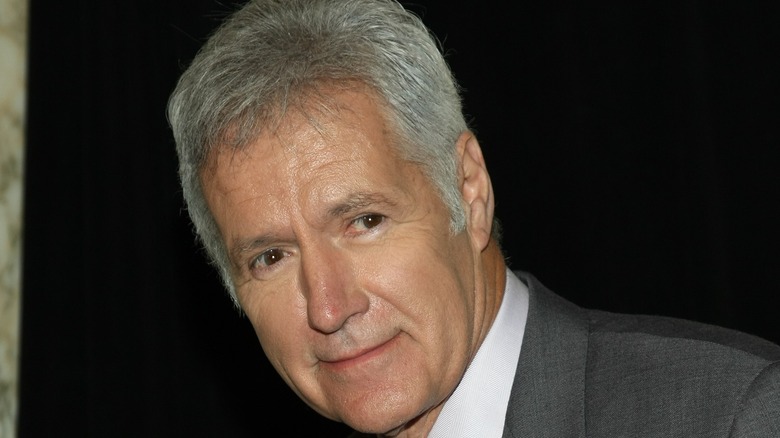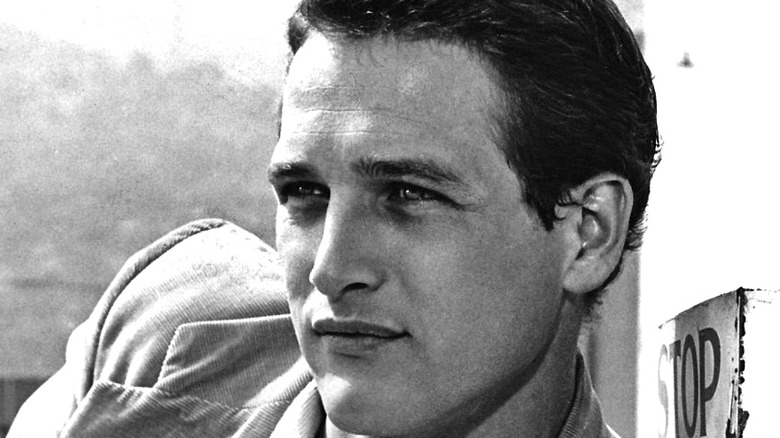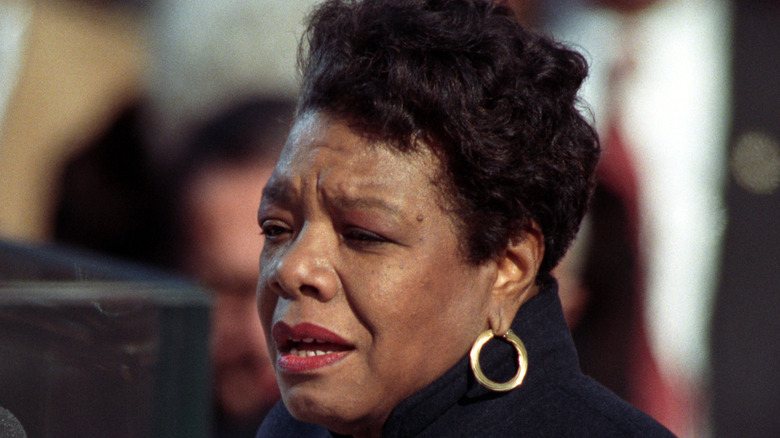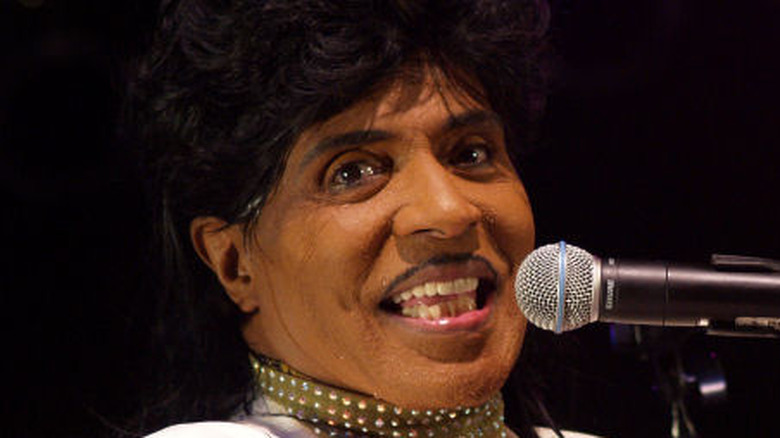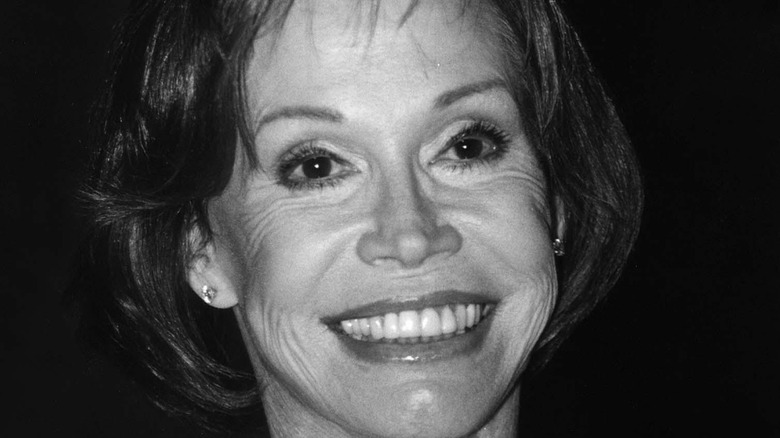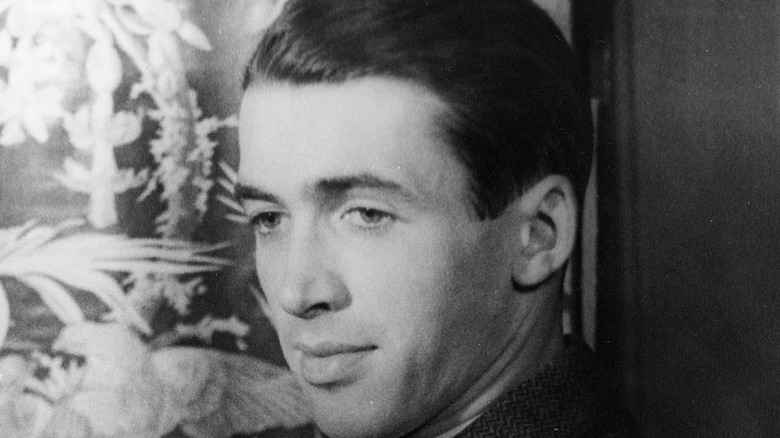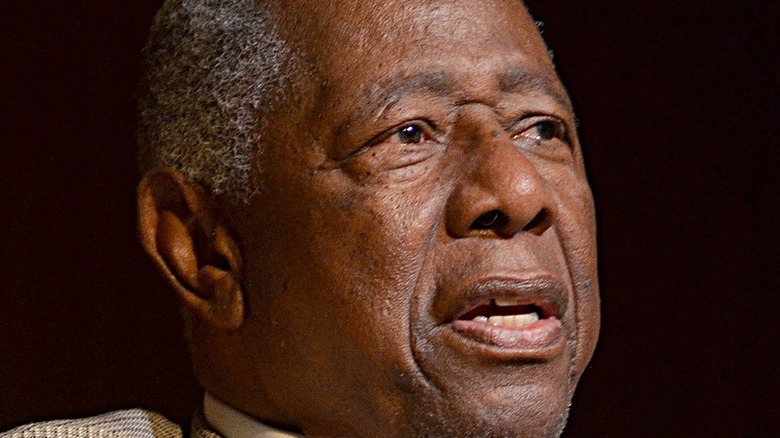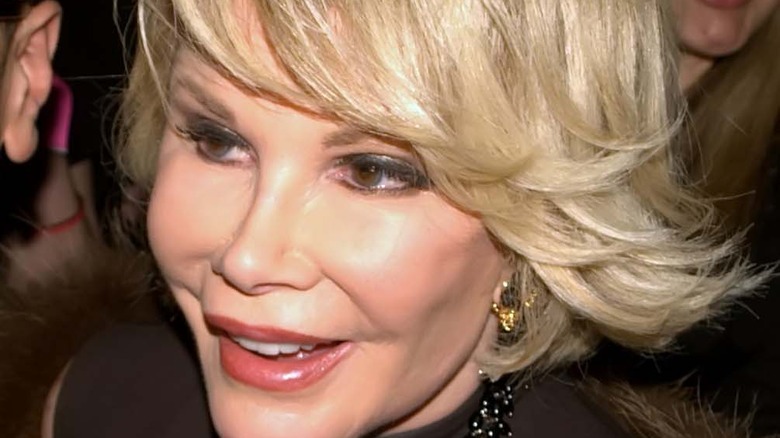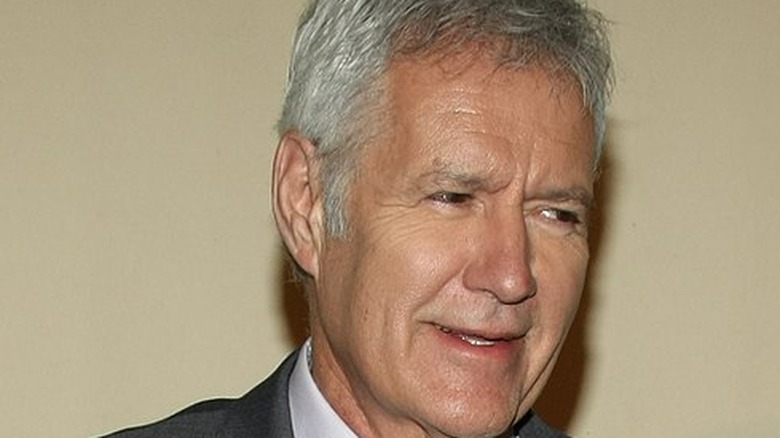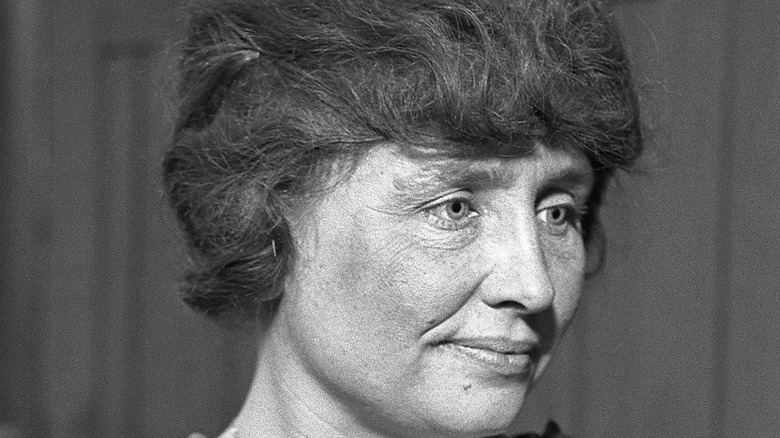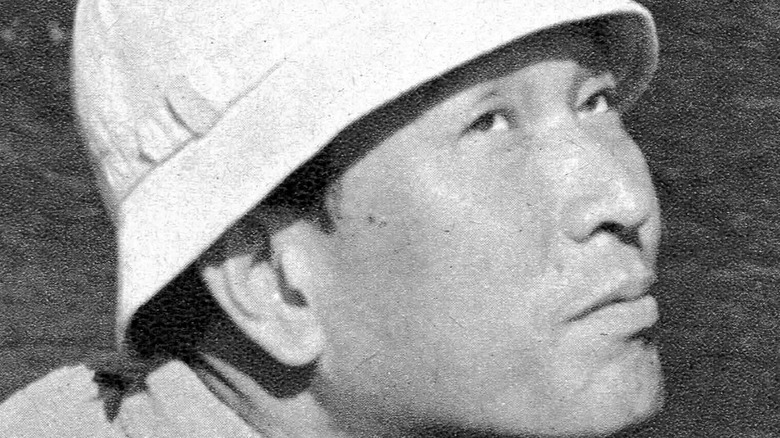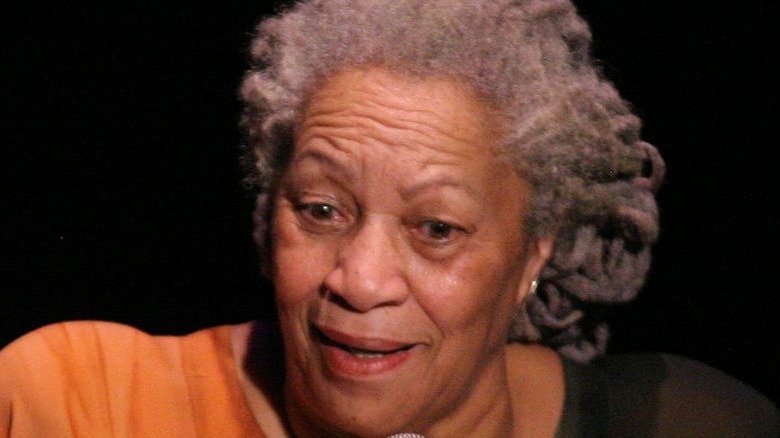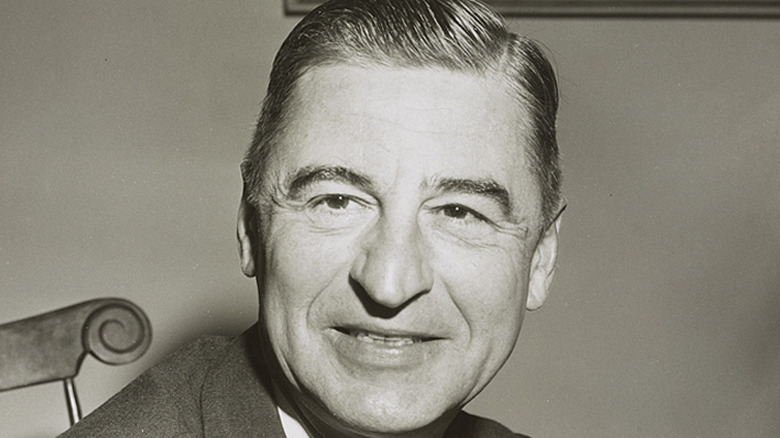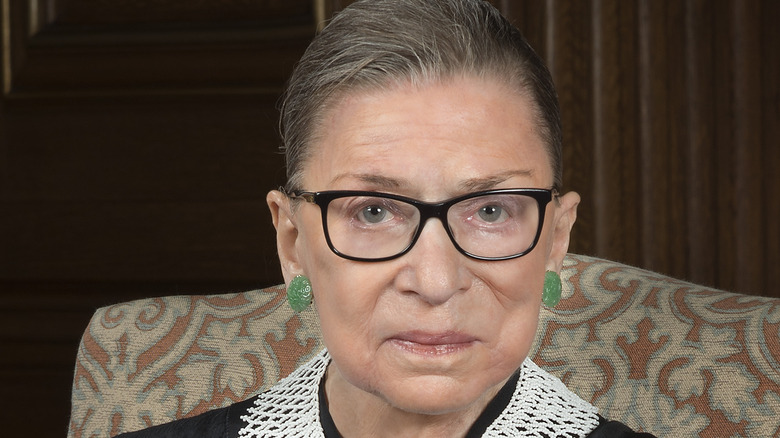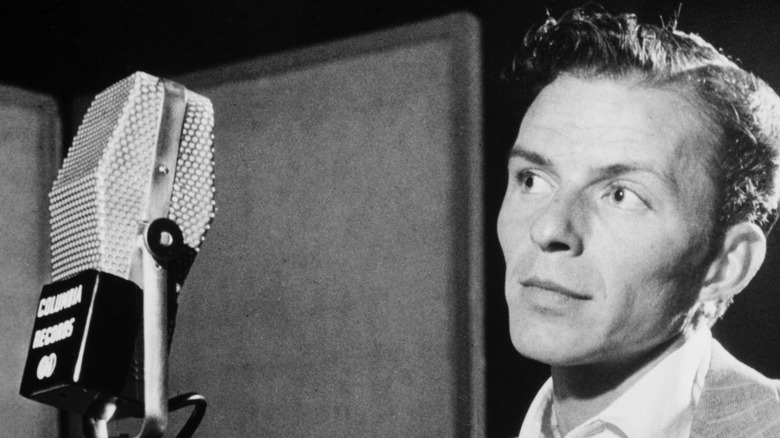Famous Celebrities Who Died In Their 80s
Correction 05/20/22: A previous version of this article stated that James Stewart had four Oscar nominations. Stewart had five, not four.
Celebrities who live such long lives — actors, writers, musicians, and other public figures — often cross generational boundaries, providing shared cultural connections between grandparents and grandchildren, parents and children, and beyond. However, when they die, despite having lived long and fruitful lives, we are still left feeling as though it weren't enough time — as if gifted another decade, another year with their presence, the world would be an even better place simply due to their existence in it.
These celebrities often have decades of being in the public eye, producing art and entertainment that evolved over time and leaving a legacy many of us could only hope to achieve a fraction of in our own lives. They remind us that however long we live, we should strive to make the best of time, to never settle, and to continue to ensure a worthwhile legacy is left behind. Here are some famous celebrities who died in their 80s.
Paul Newman
Paul Newman is perhaps most remembered today as the legendary Oscar-winning actor who over five decades starred in films such as "Cool Hand Luke," "The Hustler," and "Butch Cassidy and the Sundance Kid." As described by Biography though, Newman was also a veteran of the Pacific Theater in World War II, as well as an accomplished director, businessman, philanthropist, race car driver, and, above all else, a family man at his Connecticut home with wife and actress Joanne Woodward. He was involved in politics too and, according to Today, he was "delighted" and "tickled pink" when he found out he was on Richard Nixon's enemies list.
Even later in his career, Newman didn't slow down. In the 1980s, he co-founded Newman's Own, known for its salad dressings and spaghetti sauces, and over the following decades, he donated over $245 million of its profits to charities (via Newman's Own). All the while, he continued to earn accolades for acting, earning an Oscar nomination in 2002 for "Road to Perdition" and winning an Emmy and Golden Globe in 2005 for the HBO miniseries "Empire Falls." In 2007, he told ABC's Good Morning America that he was officially retiring from acting. Privately, Newman was battling lung cancer. The following year, at the age of 83, he died. In their remembrance, The New York Times described him as "one of the last great 20th-century movie stars" who had redefined cinema's "sullen rebel" first introduced by Marlon Brando and James Dean.
Maya Angelou
Maya Angelou was a celebrated writer and civil rights activist who first rose to literary stardom in 1969 with the publication of her autobiography "I Know Why the Caged Bird Sings." Over the following years, she became just as well-known for her poetry collections, for which she received a Pulitzer Prize nomination as well as Grammy Awards for her audio versions (via Biography). As described by Britannica, Angelou constantly challenged herself with new creative endeavors: writing screenplays, performing in films and on Broadway, directing, and even teaching at the collegiate level at Wake Forest University despite having no formal college education herself (although she had over 30 honorary degrees, according to the National Book Foundation).
As years passed, her esteem and celebrity grew, and she continued to write profusely. In 1993, she recited a poem at the presidential inauguration of Bill Clinton. In 2011, she was honored with the Presidential Medal of Freedom by President Barack Obama. "She has given her life in the name of creating a love of language and a keen awareness of the power of literature and learning," the president of Wake Forest University declared in a statement on her award. In 2014, Angelou passed away at the age of 86. She had become increasingly frail in her 80s, but according to her agent, Angelou was still full of life when she talked to her the day before, and she had even been working on a new book (via ABC News). In 2021, it was announced by the U.S. Mint that Angelou would be the first quarter issued for their American Women series.
Little Richard
Richard Penniman, better known as Little Richard, was a pianist and singer known for his electric stage presence while singing songs including "Tutti Frutti" and "Good Golly Miss Molly." His influence on music had led to him being called the "great innovator of rock 'n' roll music," as per The New Yorker. According to American Songwriter, John Lennon, Paul McCartney, David Bowie, Mick Jagger, and Elton John all have described him as one of their most significant influences. His career spans all of the way back to 1951 when a radio performance he gave led to a contract with RCA Records — but it was four years later with Specialty Records that he would release "Tutti Frutti" and catapult to No. 17 on the Billboard charts (via Biography).
His music career had its ups and down — including a handful of years where he quit music to become an evangelical preacher (via Britannica) — but the admiration and respect he received from the music community always remained. He was one of the 10 initial inductees into the Rock & Roll Hall of Fame in 1986 and received the Grammy Lifetime Achievement Award in 1993, as per Biography. In 2013, he retired from performing after years of declining health, reported The Guardian. He died in 2020, at the age of 87, from complications related to bone cancer. "His was the original spirit that moved me to do everything I would do," Bob Dylan tweeted that day.
Mary Tyler Moore
After World War II, a young Mary Tyler Moore and her parents relocated from New York City to Los Angeles, opening the door for Moore to begin auditioning for commercials as a teenager (per Britannica). It would be the beginning of a long and illustrious career in showbiz, as she took bit parts in television variety shows and dramas before her big break in 1961 when she was cast in "The Dick Van Dyke Show" for which she won her first Emmy award and demonstrated to the world her comedic chops. She then went on to create "The Mary Tyler Moore Show" in 1970, which ran for seven seasons and earned 29 Emmy wins with Moore snagging three wins (per Television Academy).
As described by Biography, Moore continued to work in television but also on stage and in film, even getting an Academy Award nomination for her performance in 1980's "Ordinary People." Over her long career, she struggled with various health issues that she was often very open to discuss, including alcoholism, type 1 diabetes, and a brain tumor, and in her 70s, her health began to decline, according to The Guardian. She passed away in 2017 at 80 years old. In their tribute to Moore, Jennifer Armstrong wrote in Entertainment Weekly how Moore had "paved way for the liberated ladies of modern primetime."
James Stewart
Few actors in Hollywood history ever reach the iconic status of James "Jimmy" Stewart. With five Academy Award nominations and two wins (including an honorary Oscar), he is one of the most celebrated actors of all-time (per IMDb). Born in the small town of Indiana, Pennsylvania, in 1908, Stewart grew up thinking he was going to inherit his family's hardware store, according to The Jimmy Stewart Museum. Instead, while at Princeton University studying architecture, he performed in a few stage shows and was hooked. Within a year of graduating, he made his Broadway debut and by 1935, he signed his first contract with MGM Studios and was headed to Hollywood, according to Biography, acting in iconic films such as "It's a Wonderful Life," "Mr. Smith Goes to Washington," and "Rear Window."
Over the next five decades, he made countless films, taking a break only during World War II when he put his Hollywood career on hold to join the Army Air Corps, flying combat missions in the European Theater against Nazi Germany (per The Jimmy Stewart Museum). Afterwards, he continued churning out dozens of films. By the '80s though, he slowed down and, when his wife passed away in 1994, he never quite recovered from the grief having been together since 1949 (per Biography). He died during the summer of 1997 at age 89 with Variety eulogizing him as a "movie star, war hero, good citizen and just plain nice guy."
Neil Armstrong
The first people who accomplish feats are often remembered, but there is something special about the first man to sep foot on the moon. Neil Armstrong captured the imagination of millions, if not billions, of people when he stepped onto the lunar surface, delivering his iconic words, "That's one small step for man, one giant leap for mankind." From a young age, it seemed Armstrong was destined for great things. According to History, he earned his pilot's license at age 16, attended Purdue University where he studied aeronautical engineering, and served as a U.S. Navy pilot during the Korean War. NASA describes how Armstrong then joined the National Advisory Committee for Aeronautics (NACA) in 1955, which would then become National Aeronautics and Space Administration (NASA), where he began training as an astronaut in 1962. By the summer of 1969, Armstrong would sep foot on the moon.
He resigned from NASA in 1971 and, as recounted in Britannica, spent many years trying to stay out of the limelight while focusing on being a professor of aeronautical science and, later, working in the private sector overseeing the manufacturing of aviation equipment. Sadly, he died in 2012 at age 82 due to complications during heart surgery. Afterward, Armstrong's sons contended that the hospital was at fault, and they hired an independent heart specialist who reviewed medical records and concluded the hospital made preventable fatal mistakes, the Cincinatti Enquirer described. Armstrong's sons eventually settled with the hospital.
Hank Aaron
The National Baseball Hall of Fame wrote that Hank Aaron "was everything an athlete -– and a human being -– should be." Growing up in segregated Mobile, Alabama, Aaron was one of eight children, and he demonstrated a passion for baseball and football at an early age (via Biography). While still in high school, he played for numerous independent segregated teams before finally being recruited to the professional Negro League in 1952, according to the Negro Southern League Museum Research Center. He wasn't there long. He soon signed a contract with the now desegregated Major Leagues to play for the Milwaukee Braves, playing his first game in 1954 at the age of 20.
He played 23 seasons, breaking batting records of Babe Ruth and Ty Cobb while also winning a World Series and earning the title of Most Valuable Player (per Britannica). Notes the National Baseball Hall of Fame, Aaron still holds the record for most RBIs (run batted in) and total bases and finished his career with a remarkable 755 home runs. After completion of his playing career, he then worked in baseball operations behind-the-scenes. Aaron passed away in his sleep of natural causes on early 2021 at the age of 86. Former President George W. Bush, an avid baseball fan, released a statement, stating that Aaron "wasn't handed his throne" and "grew up poor and faced racism as he worked to become one of the greatest baseball players of all time" (via People).
Joan Rivers
In 2014, Barbara Walters described Joan Rivers as "a brassy, often outrageous, and hilarious performer who made millions laugh" (via the New York Daily News). She had an unconventional path to getting the laughs, first working on stage as an actress before transitioning to small clubs, showrooms, and cabarets, and finally earning her big break in the late '60s when she appeared on "The Tonight Show with Johnny Carson" — where she would appear over 100 times (per Biography). Over the following years, Rivers became known for her edgy and sometimes shocking jokes, but she also managed to stay in the mainstream, hosting her own daytime talk show, winning Grammy and Emmy awards, and then being picked to host her own late night talk show when Fox Network premiered in 1986, according to Joan Rivers.com.
She continued to work on a variety of television projects over the next few decades, evolving and adjusting her comedy for the era and continuing to do stand-up comedy. Then in 2014, what was supposed to be a routine endoscopy led to her going into cardiac arrest and being put on life support, according to Deadline. She died days later at age 81. Her daughter sued the following year, alleging doctors took selfies with Rivers when she was unconscious and performed a laryngoscopy instead of an endoscopy without consent and against the warnings of the anesthesiologist (via The Hollywood Reporter). The family settled with the hospital.
Alex Trebek
There have been few game show hosts as iconic and beloved as Alex Trebek. Spending over five decades in the game show business, Trebek was a familiar nightly guest in many family living rooms over the years, whether on the Canadian quiz show "Reach for the Top" in the 1960s or his first American program, "The Wizard of Odds" in 1973 (via IMDb). In 1984 though, he earned a hosting gig for the program that would change his life and endear him to millions: "Jeopardy!." Biography describes how he quickly became a pop culture icon who won numerous Emmy awards. In Lisa Rogak's 2020 biography of Trebek, she notes how it seemed he had "been around forever" and "frozen in time."
On March 6, 2019, he opened his program with a personal message speaking directly to his audience at the camera: He had been diagnosed with stage four pancreatic cancer (via YouTube). He was determined to fight it, he said, but also planned to continue hosting duties as he received treatments. In his autobiography, which came out that summer, he noted how he was generally a private person but announced his diagnosis to "stay ahead of the tabloids" who would manufacture "all kinds of crap." Hosting "Jeopardy" with incredible energy right up until weeks before his death, Trebek succumbed to his cancer in November 2020 at the age of 80 (via CNN).
Helen Keller
Helen Keller never meant to become a celebrity. Made blind and deaf by an illness before she was even 2 years old, a 6-year-old Keller was put under the educational care of a young woman named Anne Sullivan, a teacher with the Perkins Institution for the Blind in Boston (via Britannica). As described by Helen Keller International, Sullivan taught Keller how to use her fingers to spell objects she encountered and then, over time, taught her sign language, Braille, and touch-lip reading. The story of determination and perseverance resonated with people around the world. She overcame these obstacles and, with the help of Sullivan, was able to attend college, write 12 books, ride a tandem bike, and, remarkably, even once co-pilot an airplane (per Perkins School for the Blind).
According to Biography, Keller also was passionate about social issues advocating for women's voting rights and access to birth control. She also was a proponent of socialism, campaigning for Socialist Party member Eugene Debs for president. In 1964, she was awarded the Presidential Medal of Freedom by Lyndon B. Johnson. She lived until June 1968, when she died at the age of 87 (via Connecticut History). In their eulogy to Keller, The New York Times described her as "a symbol of the indomitable human spirit" who was always certain "that her optimistic attitude toward life was justified."
Akira Kurosawa
Akira Kurosawa was named the sixth greatest director of all-time by Entertainment Weekly. He was an inspiration for George Lucas while developing Star Wars (per Criterion). A poll of over 200 film critics conducted by BBC named his film "Seven Samurai" the number one greatest foreign language film of all time. Indeed, Kurosawa is one of the most legendary and influential directors of cinema with films such as "Rashomon," "Yojimbo," "The Hidden Fortress," and "Ikiru" inspiring filmmakers across the world (via IMDb). He was born in Tokyo in 1910 — the descendent of samurai according to family lore — and after graduating high school, he initially studied painting before he stumbled into a job as an assistant director to Kajirō Yamamoto, a widely respected director who soon became Kurosawa's mentor, according to Biography.
While his career had its ups and downs, he continued to maintain the respect of his fellow filmmakers. Those who worked with him often called him "sensei," and he had a reputation for being a perfectionist (per Variety). In 1990, he was presented with an Honorary Oscar, handed to him by both George Lucas and Steven Spielberg. He released his final film in 1993. In September 1998, he suffered a stroke at home and died at age 88. In a eulogy for Time Magazine, filmmaker Martin Scorsese called him "one of the towering figures of world cinema" whose "genius ... will live on forever in his films."
Toni Morrison
From her early years growing up in Ohio in the 1930s and '40s, Toni Morrison was always passionate about literature. She funneled this passion into her education and went on to study English at Howard and Cornell Universities (per Biography). After spending a few years teaching and working as an editor, she published her first book, "The Bluest Eye," in 1970. With each of her subsequent books, her celebrity and renown increased before finally winning a Pulitzer Prize for Fiction in 1988 for her book "Beloved" (which would be adapted into a film a decade later by Oprah Winfrey). A few years later, she won the Nobel Prize for her "novels characterized by visionary force and poetic import."
She continued to write books, including numerous children's books with her son Slade before his death from pancreatic cancer at age 45. The loss of her son left her grief-stricken and unable to write, but after time, she continued on, even finishing some of the books they were working on together (per Time Magazine). The National Women's History Museum explains many of her other accomplishments, including her professorship at Princeton University, being named a Living Legend by the Library of Congress, and receiving the Presidential Medal of Freedom. In August of 2019, she contracted pneumonia and was unable to recover, dying at age 88 (via Salon). She had been, simply put, a "magician with words," Oprah Winfrey wrote in a tribute to her friend.
Dr. Seuss
Theodor Seuss Geisel, better known to the world as Dr. Seuss, was born in Springfield, Massachusetts, in 1904. His career began as a humorist and illustrator for popular magazines as well as in advertising before he made the conscious decision to begin writing children's books — ideas of his that were repeatedly rejected by publishers (per Britannica). According to History, his first children's book, "And to Think That I Saw It On Mulberry Street," was published in 1937, but he wouldn't see best-selling success until two decades later with "The Cat in the Hat." The rest is history. As described by the Dr. Seuss Museum, Geisel penned and illustrated dozens of children's books, produced movies and shows based on his work, and won Oscars, Emmys, a Pulitzer, and a Peabody Award.
In his 80s, he was diagnosed with cancer (via the Los Angeles Times). In September 1991, he died in his sleep at the age of 87 with his family by his side. In the announcement by the Associated Press, they noted his "nonsense, magical worlds" that he created that generally included "subtle messages on issues important to him, from internationalism to environmentalism." In all, Geisel's books have sold over 700 million copies worldwide, according to the New York Times, making him one of the best-selling authors of all-time.
Ruth Bader Ginsburg
When you think of a celebrity, the words "Supreme Court Justice" don't often pop into one's head, but it's difficult to deny that Ruth Bader Ginsburg reached celebrity status during her lifetime (all you need to do is Google "Ruth Bader Ginsburg swag" for a sample of her online superstar status). Ginsburg was indeed a trailblazer in her field. According to History, she was one of only eight women out of 500 enrolled at Harvard Law School when she attended, even facing the wrath of the school's dean for taking a spot that could have gone to a man. Naturally, she proved more than capable, eventually transferring to Columbia Law School where she graduated top of her class in 1959.
As described in her official Supreme Court biography, she worked her way up the legal ranks working as a professor of law, advising the American Civil Liberties Union, joining numerous boards and councils, and then in 1980, she was appointed a federal judge. After President Bill Clinton was elected to office, she was then appointed to the Supreme Court and officially joined the bench in 1993. She was quickly known for her well-written and strongly worded dissents to majority opinions (via CNN). In 2009, she was diagnosed with early stage pancreatic cancer but managed to receive successful treatments. Over the next decade, she continued her work on the court, even after the cancer came back with a terminal diagnosis. She died in September 2020 at the age of 87 (per NPR).
Frank Sinatra
Francis "Frank" Sinatra's iconic baritone voice made him one of the most recognizable and bankable musicians of the 20th century. Born in 1915 in New Jersey to Sicilian immigrants, his father owned a bar and boxed professionally while his mother was influential in local politics (via Britannica). According to Biography, it was seeing Bing Crosby perform live in the 1930s that made him want to become a professional singer, and soon, he was in front of the microphone at local nightclubs. By 1943, his solo career had taken off. That same year, he starred in his first Hollywood film as well. As described by Britannica, his fame exploded immediately, and concerts would be packed with young women who screamed at the top of their lungs in excitement to see him.
His career would span five decades, and not only would he win acclaim and awards for his music, but also for his acting, winning an Academy Award for Best Supporting Actor and starring in nearly 60 films (per History). In 1998, he died at the age of 82 of a heart attack. In their obituary, The New York Times described him as "the greatest singer in American pop history" and cited him as single-handedly making swing music cool again. Today, his influence on music and movies remains; after all, he sold over 150 million records in his lifetime and is still selling them even two decades after his death (per CNBC).
